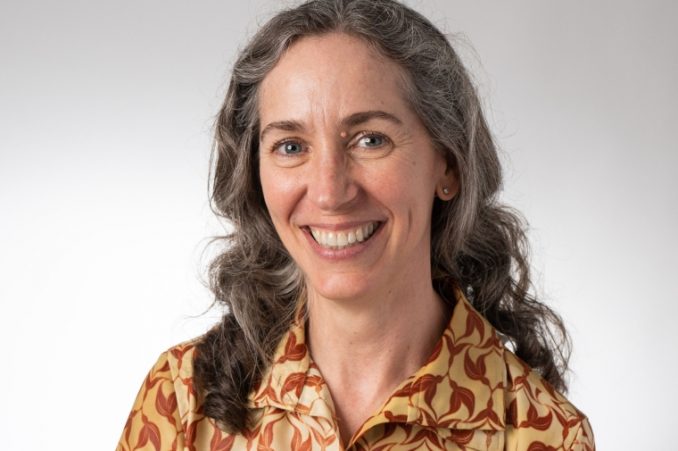
The University of Pennsylvania Weitzman School of Design has selected Catherine Seavitt Nordenson to join the faculty as a tenured professor and chair of the Department of Landscape Architecture, effective July 1, 2023. One of the most admired scholar-practitioners of her generation, she is both a registered architect and landscape architect as well as a professor of landscape architecture at the City College of New York, where she directs the Master of Landscape Architecture program.
Seavitt succeeds Richard Weller, professor and Martin and Margy Meyerson Chair of Urbanism, who was appointed in 2013 and served two terms as department chair. Weller is also the co-founder and co-executive director of The Ian L. McHarg Center for Urbanism and Ecology.
Seavitt will be the third woman to lead the Department since it was established in 1924. Anne Whiston Spirn held the position of chair from 1986 to 1992, and Professor of Landscape Architecture Sonja Dümpelmann served as acting chair in the spring of 2022 and the spring of 2023.
“I have long admired the landscape architecture department at Penn for its multi-scalar, multi-species ecological approach to the public realm,” said Seavitt. “I’m very excited to advance the design inventions and pedagogical transformations that have been hallmarks of the program for decades.”
“Catherine is deeply invested in confronting the ethical crises facing the design professions, from climate change and decarbonization to racial justice and public health,” said Fritz Steiner, dean and Paley Professor at Weitzman. “She understands that higher education has a special role to play in advancing this work.”
Seavitt’s work explores climate-adaptive futures in urban environments and novel mitigation strategies addressing the climate emergency. Her research and publications examine the role of landscape architects as significant participants at the intersection of political power, environmental advocacy, and public health, particularly as seen through the design of equitable public space and policy. Her books include Depositions: Roberto Burle Marx and Public Landscapes under Dictatorship (University of Texas Press, 2018); Structures of Coastal Resilience (with Guy Nordenson and Julia Chapman; Island Press, 2018); and On the Water: Palisade Bay (Hatje Cantz, 2010). Her essays have been published widely, including by the journals Architectural Review, Artforum, Avery Review, Harvard Design Magazine, JoLA, LA+, Landscape Architecture Magazine, and Topos. She is currently at work on a book-length study of 19th-century sanitary engineer George E. Waring, Jr. to be published by the University of Texas Press that examines the relationship of public health with issues of climate, race, empire, and the infrastructural landscape.
In 2017, Seavitt partnered with the Regional Plan Association to develop an ecological design strategy as part of the Fourth Regional Plan, which was honored by Penn with the Witte-Sakamoto Family Medal in City & Regional Planning. The companion book Four Corridors (Hatje Cantz, 2019), co-edited by Seavitt, Paul Lewis, and Guy Nordenson, documents that design initiative. Her work with Guy Nordenson and Adam Yarinsky on the risks and responses to future sea level rise and coastal flooding at New York Harbor was the basis for the exhibition Rising Currents: Projects for New York’s Waterfront, presented by The Museum of Modern Art in 2010. She received funding from the Rockefeller Foundation to develop new and novel resilience proposals for Jamaica Bay, New York, foregrounding the importance of natural systems and ecological health.
In 2021, Seavitt was elected to the Council of Fellows by the American Society of Landscape Architects, one of the highest honors the society bestows upon its members. She is a fellow of the American Academy in Rome and was the recipient of a Fulbright Fellowship for research in Brazil. She has been honored for leadership and excellence in teaching by the American Society of Landscape Architects and the City College of New York, where she increased support for female, Black, Latinx, and LGBTQ students. In addition to City College, she has taught at the Cooper Union, Princeton University, Harvard Graduate School of Design, Parsons School of Design, Louisiana State University, and the University of Virginia.
“My students have taught me to look critically at what I teach, to listen attentively, to acknowledge others’ experiences, and to teach differently,” Seavitt said. “I strive to create an open atmosphere and provide mentored pathways to success for both faculty and students, with an acute awareness of the unique gifts that diverse perspectives will offer.”
Image: Gilbert Santana
Text: University of Pennsylvania
